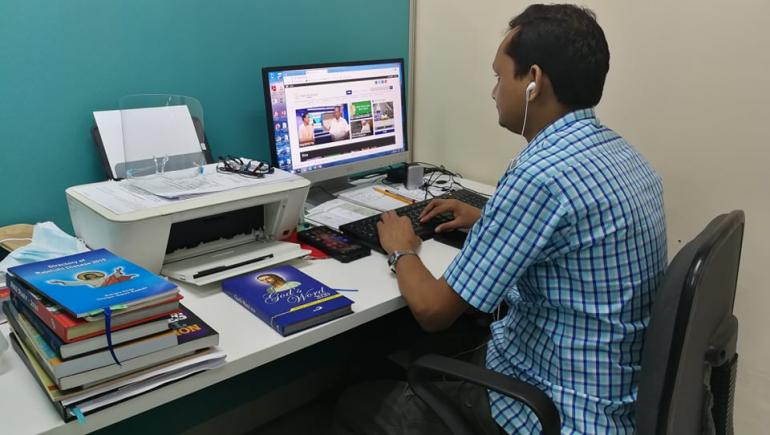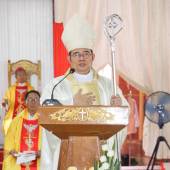World Development Information Day

If I would say that one SIM (Subscriber Identification Module) card can cost about US$1,500, you might be surprised, or might not believe me.
But it was true in Myanmar from 1995 until some time in 2005. A SIM card costs that much.
I was born in 1977 in a rural area in a poor country. I never thought then that the SIM was so expensive because I never even saw a mobile phone until I was 25 years old.
I thought then that mobile phones were only for the military and for rich people.
Later on, I came to know about the political reason behind the cost of the SIM card.
I started using a mobile phone at the age of 33. I paid about US$500 for the SIM card.
I need to communicate with others. I knew even then that communication and information are very important in our lives.
When I was in the seminary, the mother of one of my friends passed away. He received the news only after three months.
In this age of digital communication, sharing of information and knowledge has become very easy. It has become integral in the development of human society. Without it, society, a country, will be left behind.
Miscommunication and disinformation, meanwhile, can result in problems. That is why we should be more aware of the proper way of communicating.
Today is special day for us communicators as we mark World Development Information Day, October 24.
The UN General Assembly in 1972 established World Development Information Day to draw the attention of the world to development problems and the need to strengthen international cooperation to solve them.
The Assembly decided that the date for the Day should coincide with United Nations Day on October 24, which was also the date of the adoption, in 1970, of the International Development Strategy for the Second United Nations Development Decade.
The Assembly deemed that improving the dissemination of information and the mobilization of public opinion, particularly among young people, would lead to greater awareness of the problems of development, thus, promoting efforts in the sphere of international cooperation for development. - Peter KyiMg
Radio Veritas Asia (RVA), a media platform of the Catholic Church, aims to share Christ. RVA started in 1969 as a continental Catholic radio station to serve Asian countries in their respective local language, thus earning the tag “the Voice of Asian Christianity.” Responding to the emerging context, RVA embraced media platforms to connect with the global Asian audience via its 21 language websites and various social media platforms.














